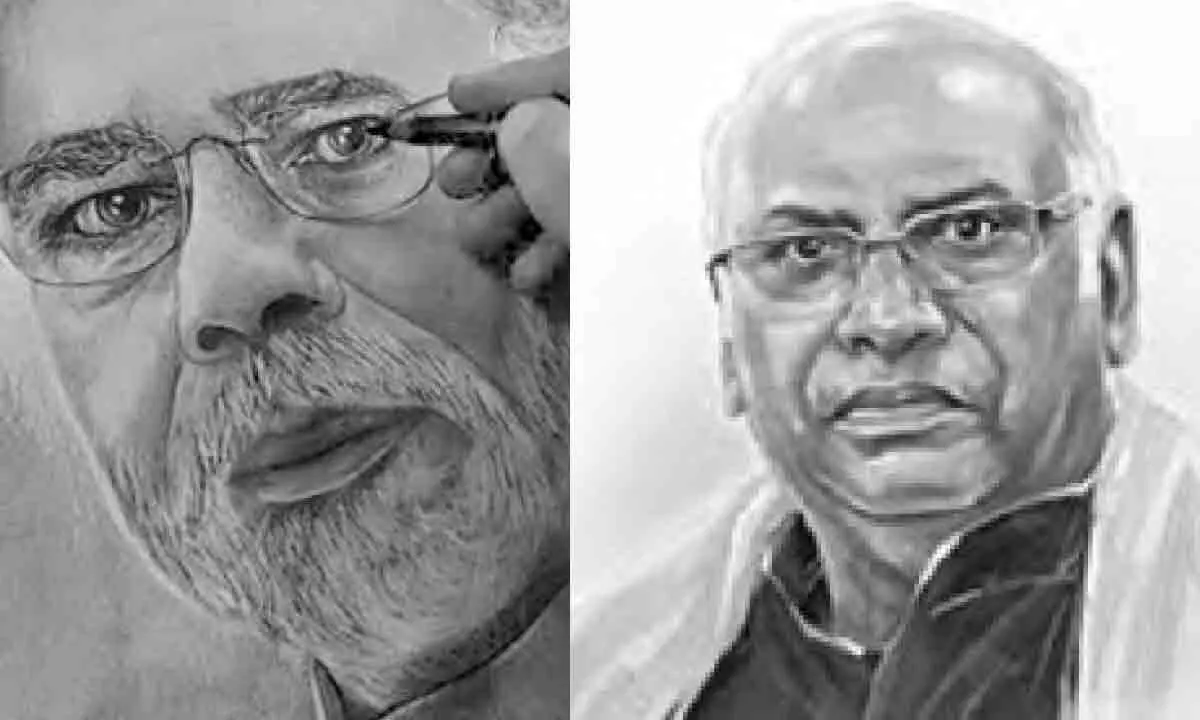Politics in BLACK and WHITE

- 1. Indian economy was on road to nowhere in 2014 because of wrong turns taken by UPA: BJP; Cong releases paper on Modi govt's failures; flags unemployment, neglect of non-BJP states
- 2. Indian economy was on a "road to nowhere" in 2014 because of the multiple wrong turns taken during the 10 years of UPA rule, leaving the onus on the Modi government to deal with the challenges and restore dynamism and optimism in the economy, the 'black paper', titled '10 saal anyay kaal' also alleged that issues such as rising prices, unemployment, subversion of institutions and farmers' "distress" had plagued the country
New Delhi : Prime Minister Narendra Modi-led government brought a white paper tearing into Congress-led UPA rule, saying that it had turned the Indian economy into a non-performing one through indiscriminate revenue expenditure, off budget borrowings and pile of bad debts at banks.
The 54-page document tabled in Parliament detailed how the Modi-government pull the economy from being counted among the most fragile-five in the world to being the fasted growing and the most attractive investment destination. Indian economy was on a "road to nowhere" in 2014 because of the multiple wrong turns taken during the 10 years of UPA rule, leaving the onus on the Modi government to deal with the challenges and restore dynamism and optimism in the economy, said the White Paper tabled by Finance Minister Nirmala Sitharaman.
The Congress released a "black paper" to highlight the "failures" of the Modi government and alleged that the last 10 years have been a period of "injustice" and of "discrimination" against states headed by non-BJP dispensations. The 'black paper', titled '10 saal anyay kaal' also alleged that issues such as rising prices, unemployment, subversion of institutions and farmers' "distress" had plagued the country. Congress president Mallikarjun Kharge released the 54-page "charge sheet" against the Centre ahead of the government's tabling in Parliament of a 'white paper' on the "mismanagement" of the economy prior to 2014 aimed at drawing lessons. "Whenever PM (Narendra) Modi presents his views in Parliament, he hides his failures. At the same time, when we speak about the failures of the government, it is not given importance. Therefore, we thought of bringing out a black paper and tell the public about the failures of the government," Kharge said.
The White Paper, highlighting the economic mismanagement by the UPA government and achievements of the 10 years of NDA rule, comes during the last session of the 17th Lok Sabha ahead of the general elections due in April-May. The paper said, after assuming power in 2014, Modi-led government took "tough decisions" to overcome the "hydra-headed challenges" of runaway fiscal deficit, decision stasis, banking crisis, corruption and scams.
The reforms undertaken by the Modi government resulted in the transition of India from the league of 'Fragile Five' to the league of 'Top Five' global economies in just about a decade and the economy has been transformed into a far more resilient avatar amidst a challenging global environment, said the 'White Paper on Indian Economy'. It regretted that the UPA government, in its quest to maintain high economic growth by any means after the global financial crisis of 2008, severely undermined the macroeconomic foundations. The banking crisis was one of the most important and infamous legacies of the UPA government.
"When our government assumed office, the economy was on a road to nowhere, exhibiting tell-tale signs of deep distress emanating from multiple 'wrong turns' in economic policy," said the White Paper which is likely to be debated in the Lok Sabha on Friday. Sitharaman is expected to reply after a four-hour debate. The finance minister, while presenting the 2024-25 interim budget last week, had said that the economy has been put firmly on a high sustainable growth path with all-round development in the past 10 years of the Modi government. "It is now appropriate to look at where we were then till 2014 and where we are now, only for the purpose of drawing lessons from the mismanagement of those years," Sitharaman had said. Listing out 15 scams, including coal block allocation, 2G spectrum auction, CWG and Saradha Chit Fund, during the UPA regime, the Paper said these corruption cases had "shaken confidence of the people" in the economy. "Ultimately, what the UPA government bequeathed in 2014 was an unenviable legacy of a structurally weaker economy and a pervasive atmosphere of despondency," the Paper said.








